Ready for a fun before-and-after project? A boring Craigslist dresser is transformed into a vision of blue beauty, in just 10 steps! There is a right way to to achieve a great finish on a painted dresser, and there is certainly a wrong way, too. Sure, you could just slap on a coat of paint and call it a day, but impatience and rushing through the repainting process means sloppy results. However, we’re here to share our careful step-by-step process, and to make sure you get it right the first time around so your Craigslist finds can shine!
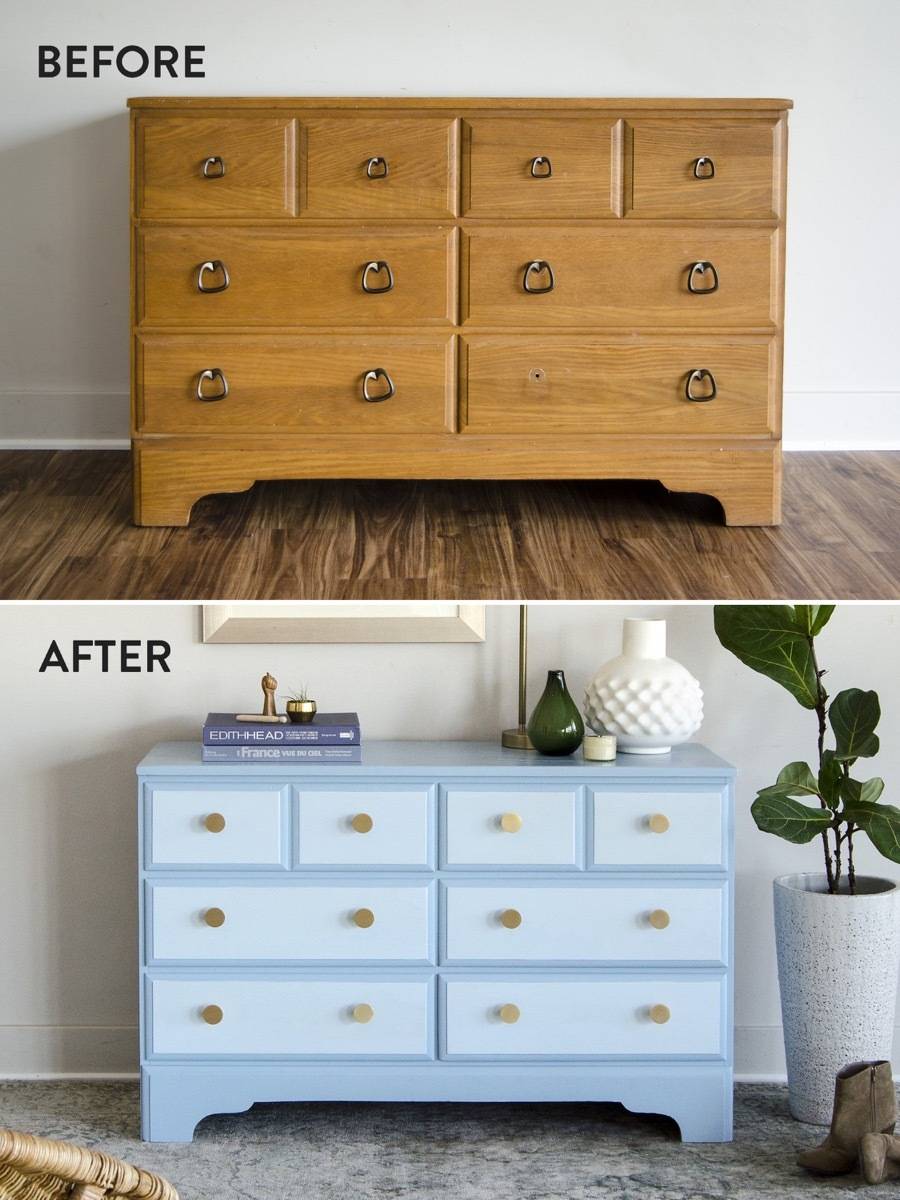
Impatience when you’re repainting a dresser can lead to some “don’t look too close” paint jobs. If you are starting your next trash-to-treasure project and want it to last for years to come, then you’ve come to the right place. Refinish your painted dresser or wood furniture in a way you can be proud of!
Watch the video on YouTube or watch below to see how to repaint a dresser, and keep reading for all the details.
Repainting painted furniture or previously varnished furniture, as with paint tile floors, isn’t as easy as it sounds. First of all, you may be dealing with someone else’s poor job, or you may have to do more prep work than you’d like to do in order to get the surface up to snuff. However, if you take the time to do the job right, you’ll love the results of your own painted dresser for years to come.
Step 1
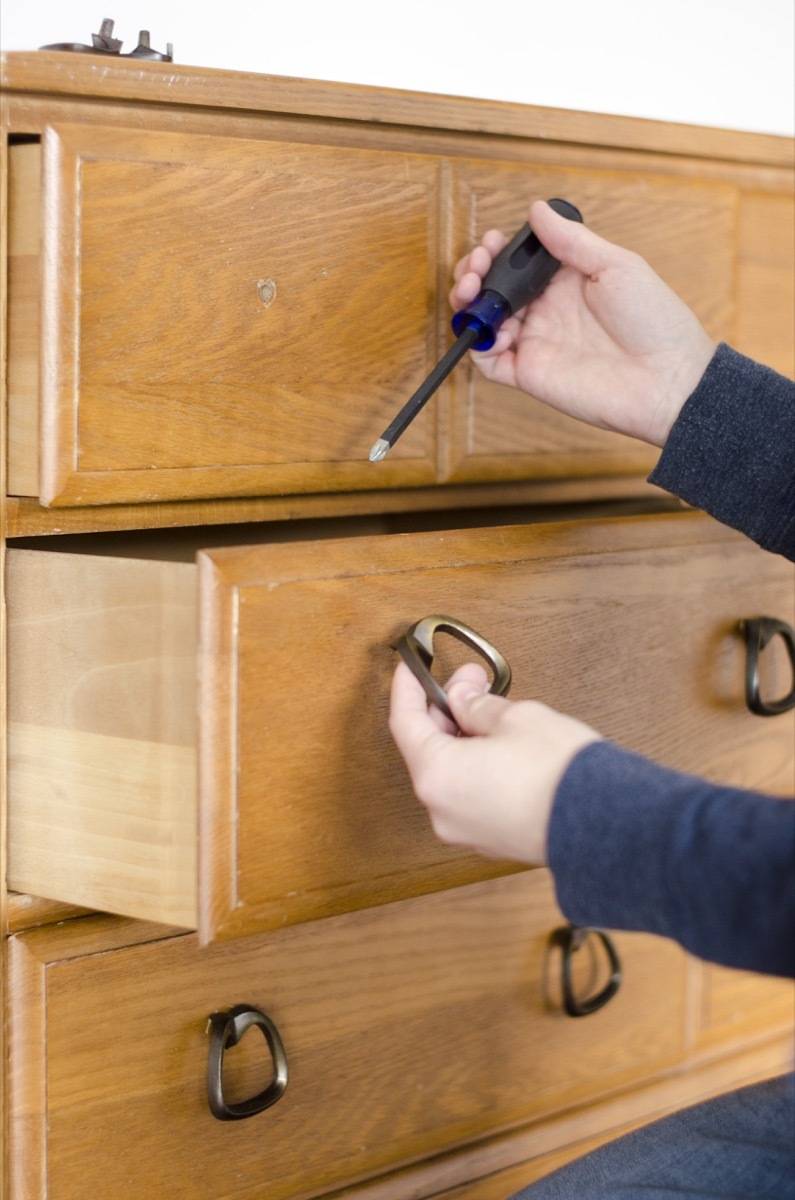
First, remove all the hardware, and pull out the drawers. Set your hardware aside if you plan on reusing it. Sadly, I couldn’t reuse the hardware on this dresser, because one knob was missing! I’ll certainly be saving them for a future project, though.
Step 2
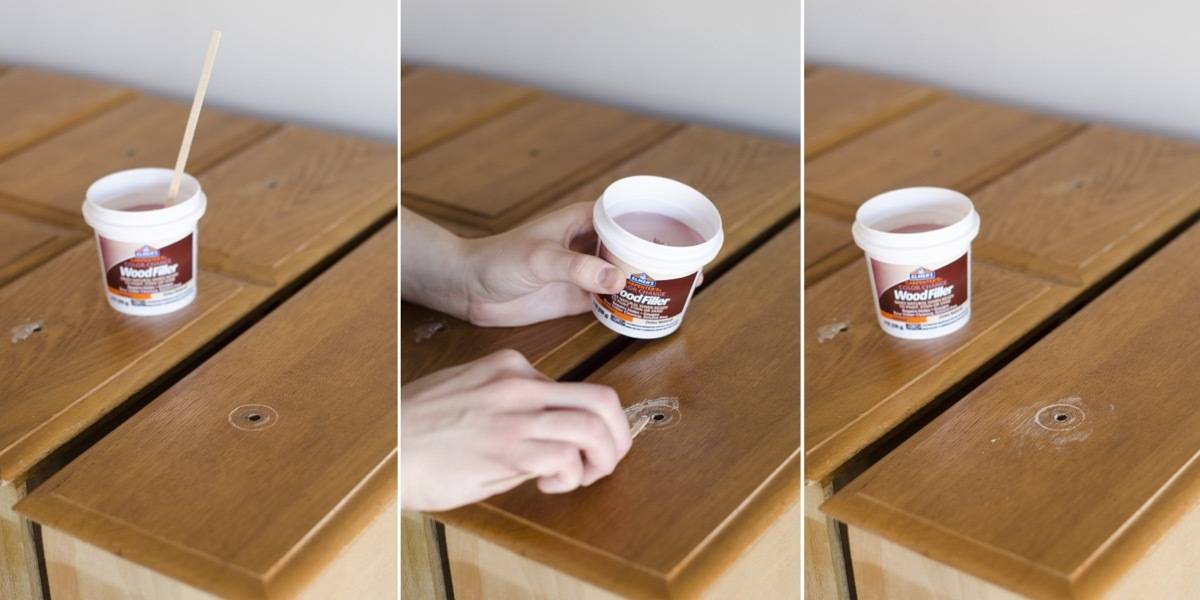
Next, fill in any holes and cracks with wood filler. You always want to overfill your wood filler, and sand it down after it dries. If you want to change the hardware on your painted dresser in a way that will require you to drill new holes (i.e. moving from a one-post knob to a two-post knob), you’ll also want to fill the knob holes with wood filler. When filling deep areas like this, work in layers, allowing the wood filler to dry before adding another layer.
Step 3
If there is any splitting veneer or split wood, now is the time to repair with wood glue and clamps.
Step 4
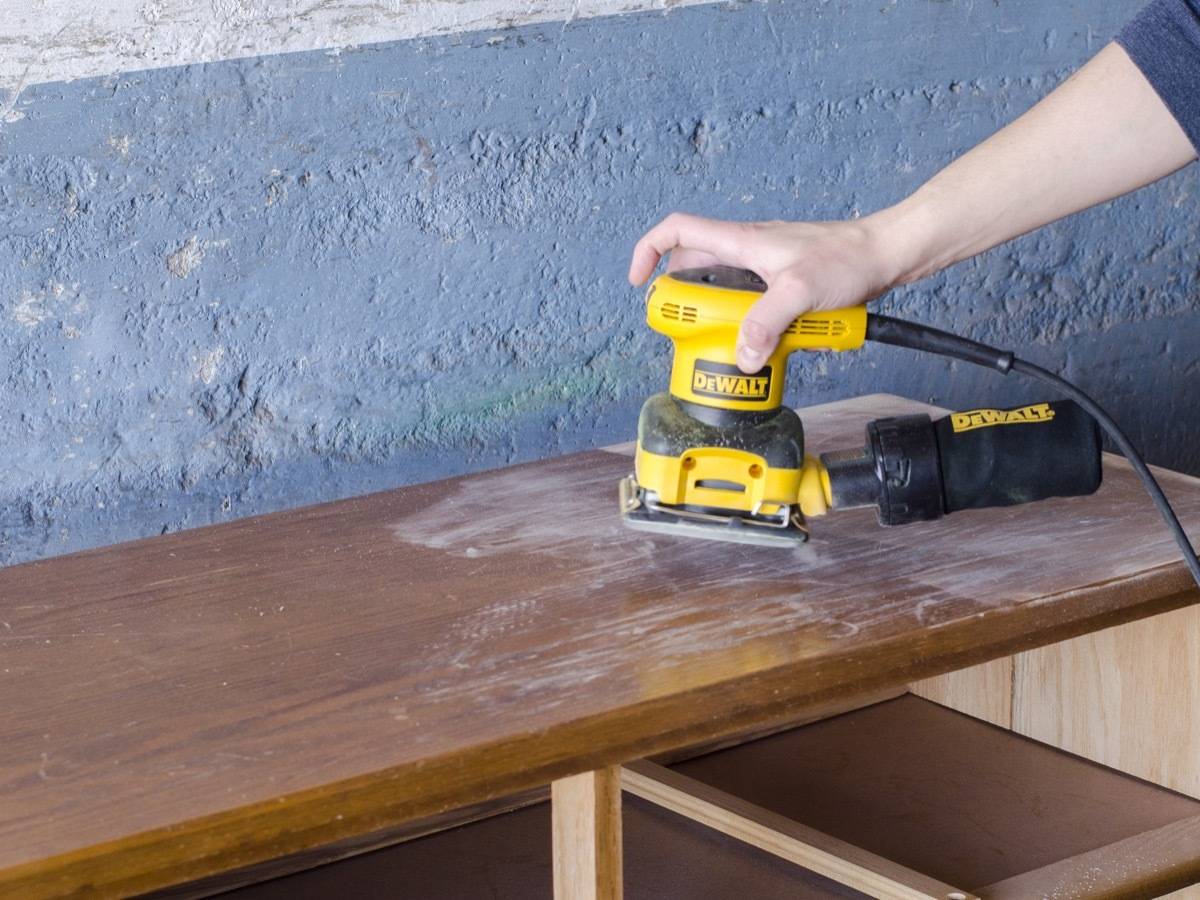
It’s time to get dusty! Sand down all repaired surfaces, plus any scratches or dings that need buffed out. If you’re painting over painted furniture, make sure to sand down any drips from the previous paint job. I recommend lightly sanding the entire piece of furniture, as it will help the new paint stick. Use sandpaper between a 120 and at least 220 grit.
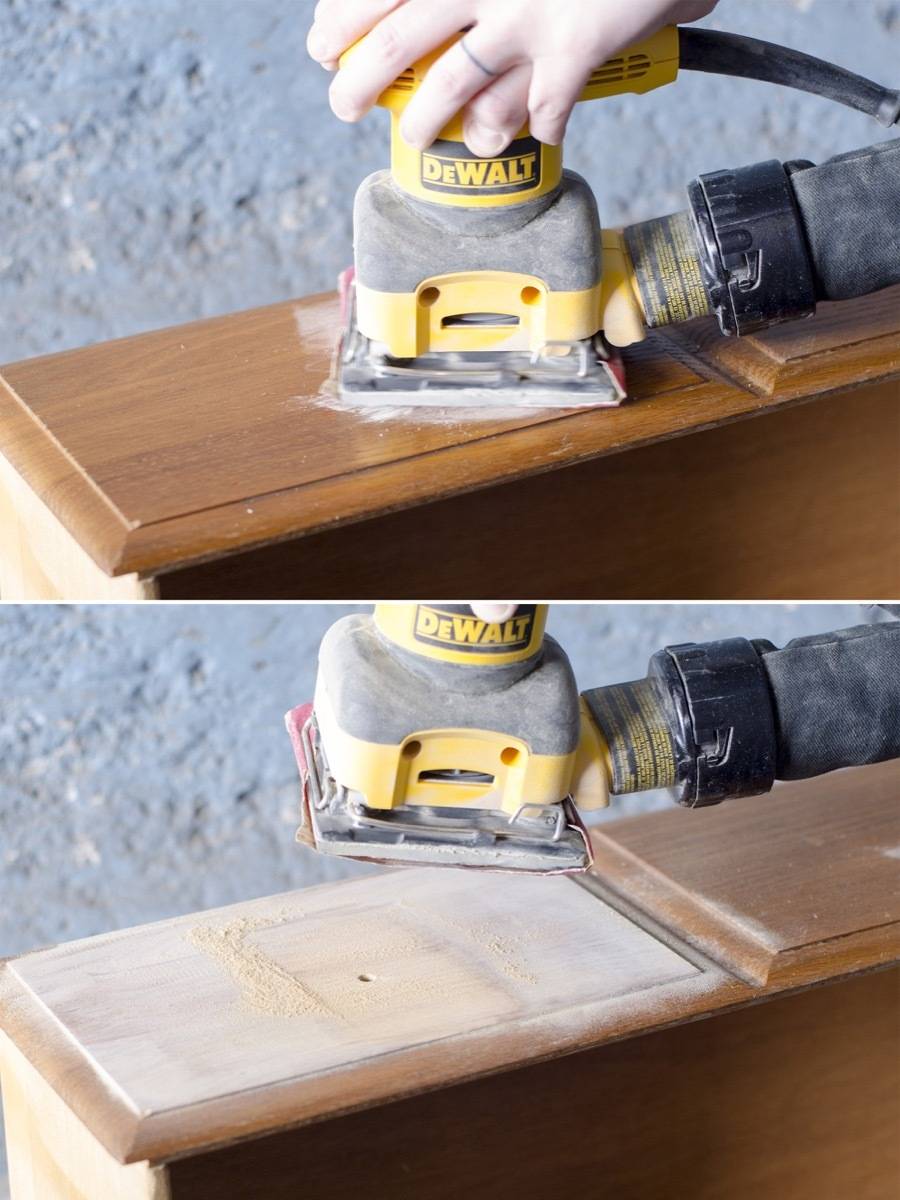
Use an electric sander for large surfaces if you can, and buff out intricate areas by hand.
Step
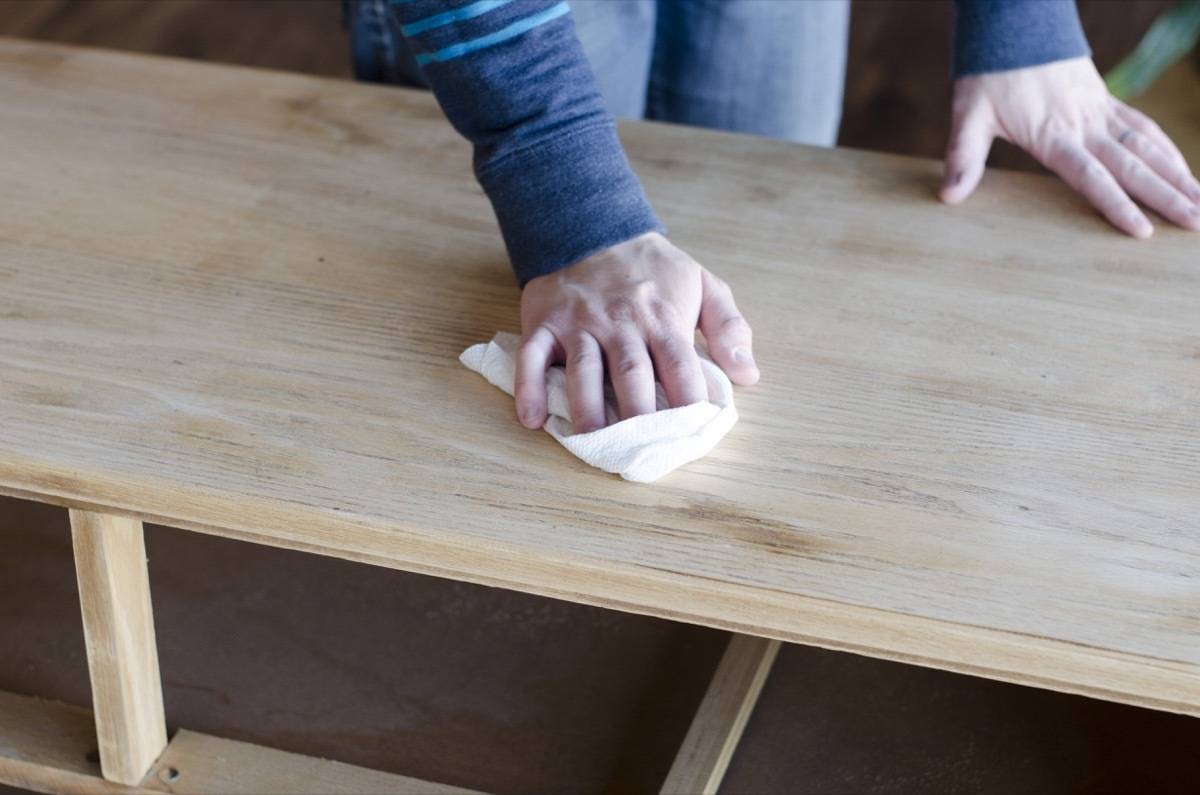
Remove all dust from your wood furniture piece using a damp rag. To achieve an extra smooth painted finish, it’s wise to paint your furniture in a room other than the one you sanded in, or to wait a day for the dust in the air to settle.
Depending on the paint you use and how durable you want your painted furniture to be, you may want to prime your wood before you move on to the next step. We recommend using two coats of an oil-based primer, applying with a small foam roller, and sanding between each coat.
Step 5
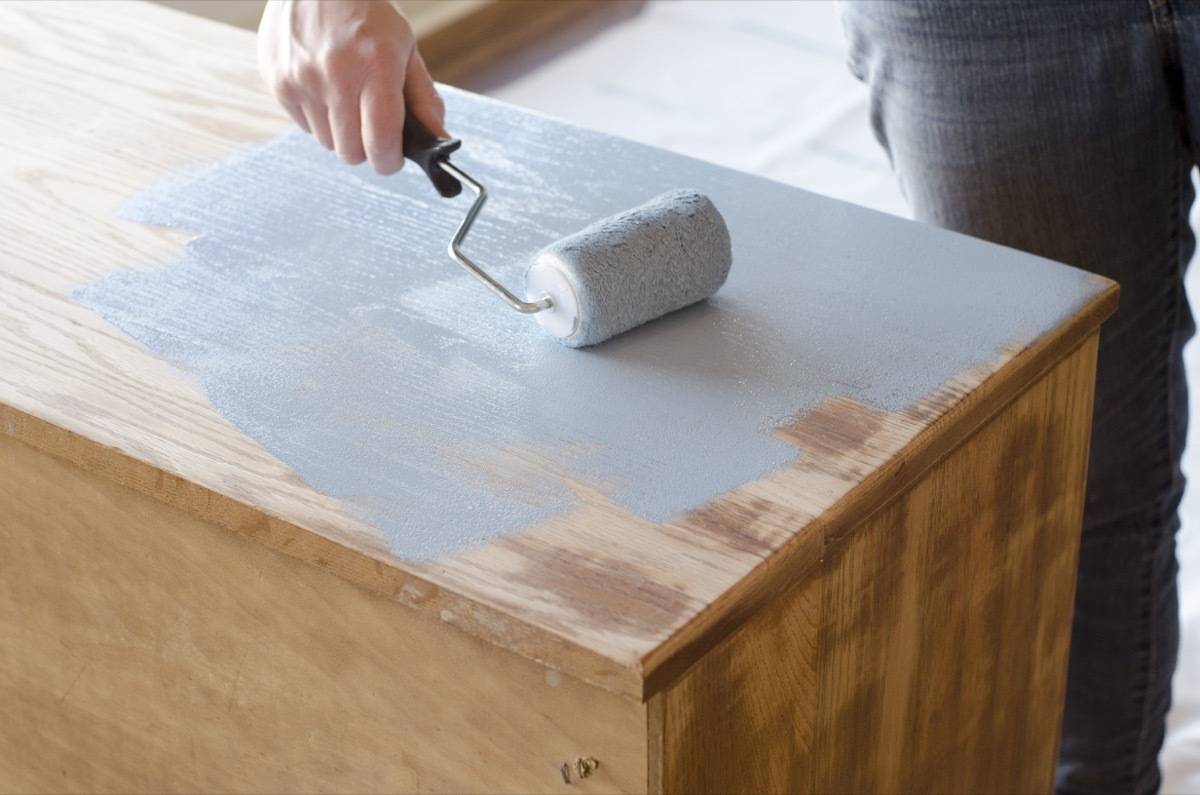
It’s finally painting time! Apply a top coat to large areas with a smooth foam roller brush, and cut into thinner or detailed areas with an angled brush. I’m using Behr’s alkyd semi-gloss in Sydney Harbour for the body, and Rain Dance for the faces of the drawers.
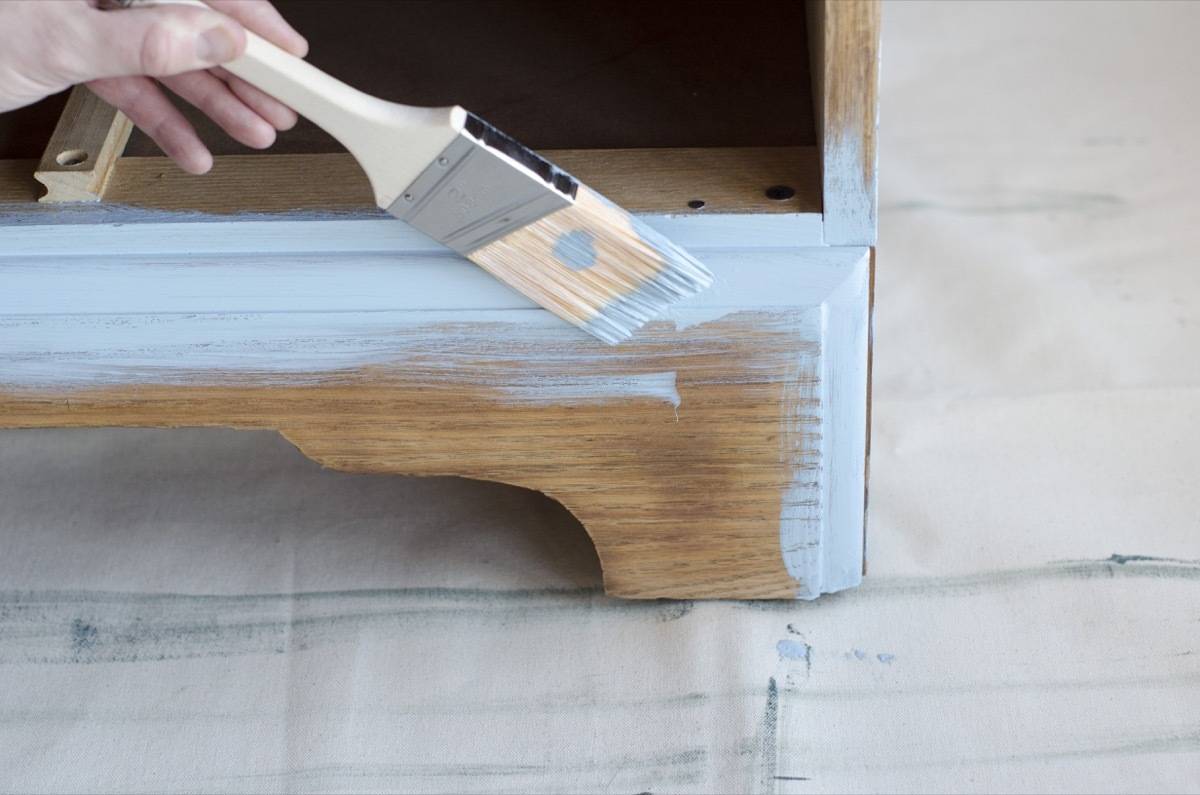
If you’ve applied a primer, chances are you won’t need a second coat. If, like me, you opted to skip the primer step, apply a second coat, giving your painted furniture a light sanding in between layers.
Let your painted dresser dry, preferably overnight.
Step 6
If you’re changing the layout of your hardware – i.e., switching from single-post knobs to double-post knobs – now is the time to mark and drill new knob holes.
Step 7
To thoroughly protect your newly painted furniture, apply a coat of wipe-on polyurethane using a clean rag.
Step 8
If you are interested in changing the look of your hardware, paint hardware with oil-rubbed paint, and let dry.
Step 9
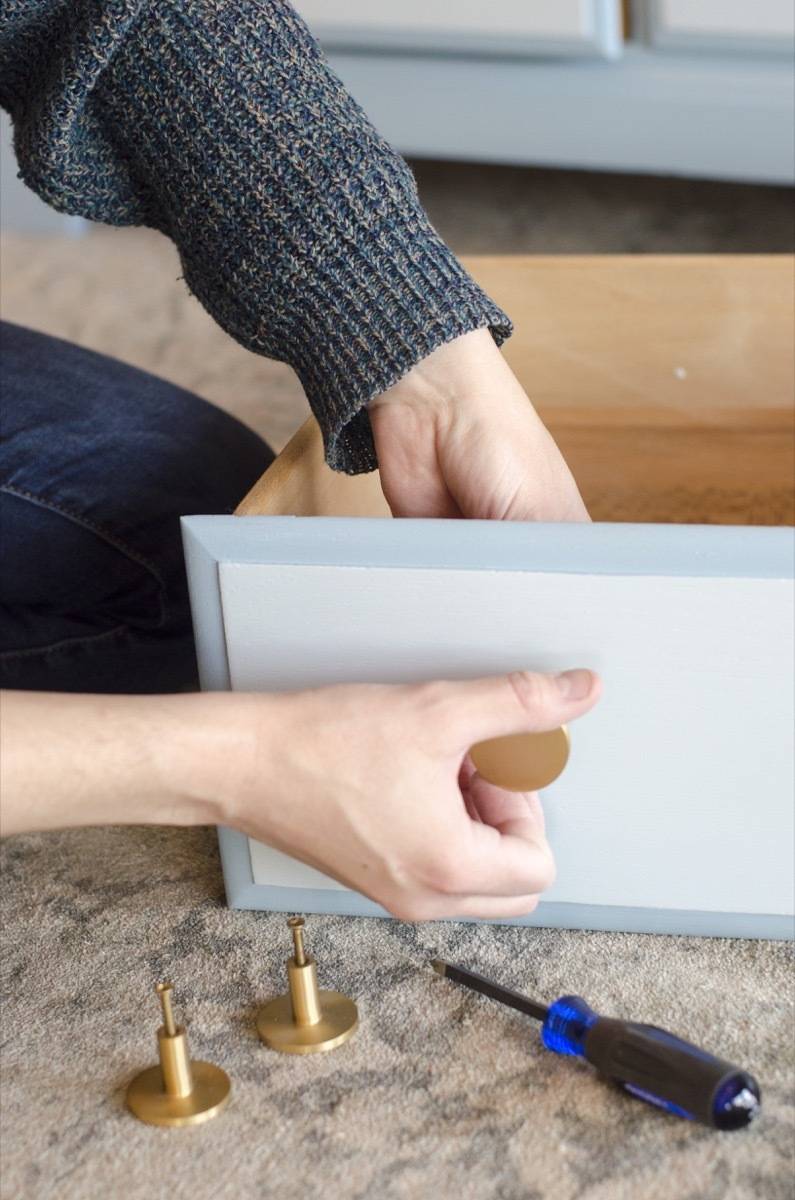
Reassemble your painted dresser, and reattach the hardware. Finally, step back and admire your work!

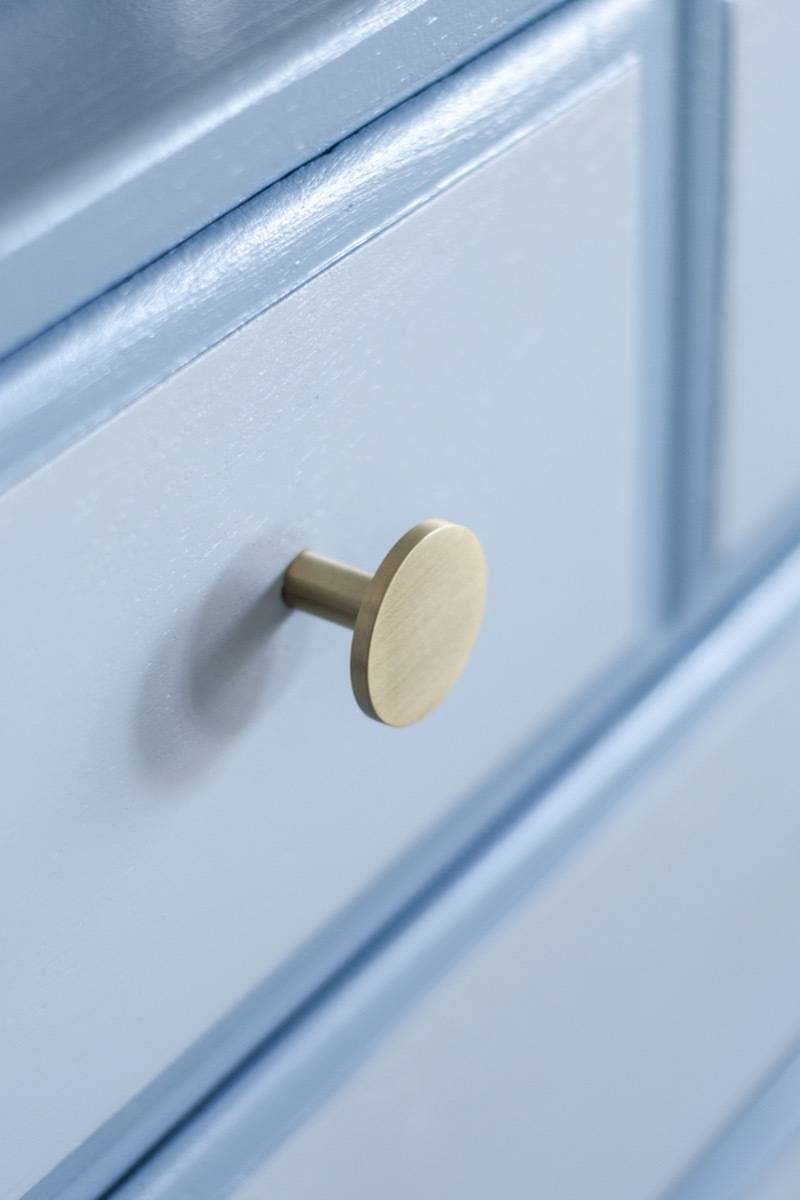
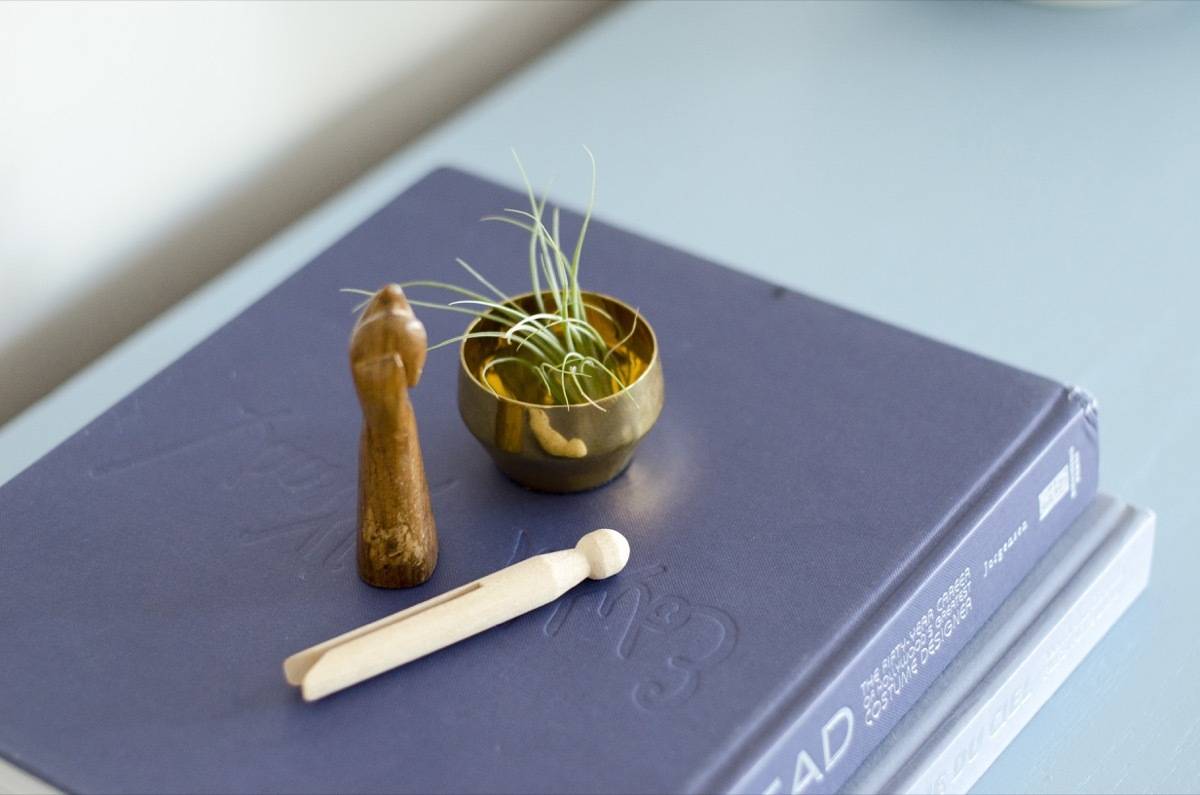
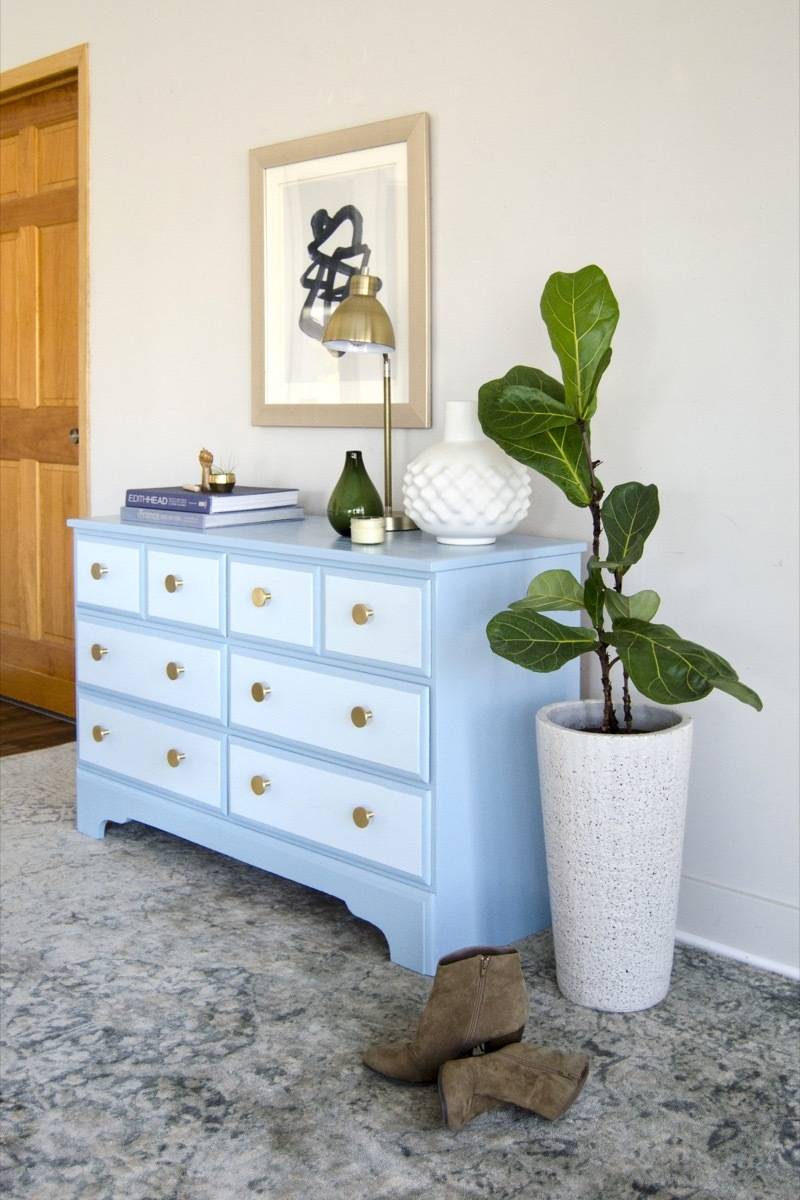
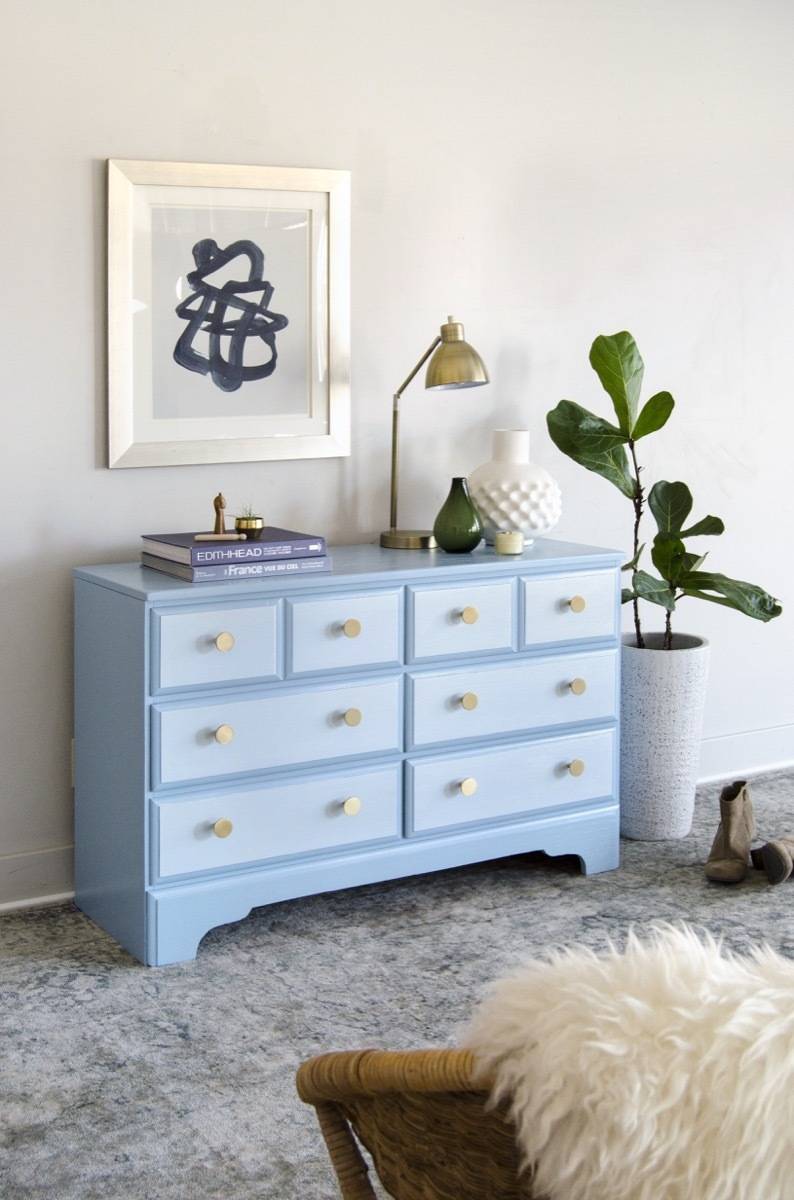

Now, when you know you did a thorough job, it makes all the hard work worth it. You’ll be able to admire that piece of furniture and if done right, it will look good for decades!
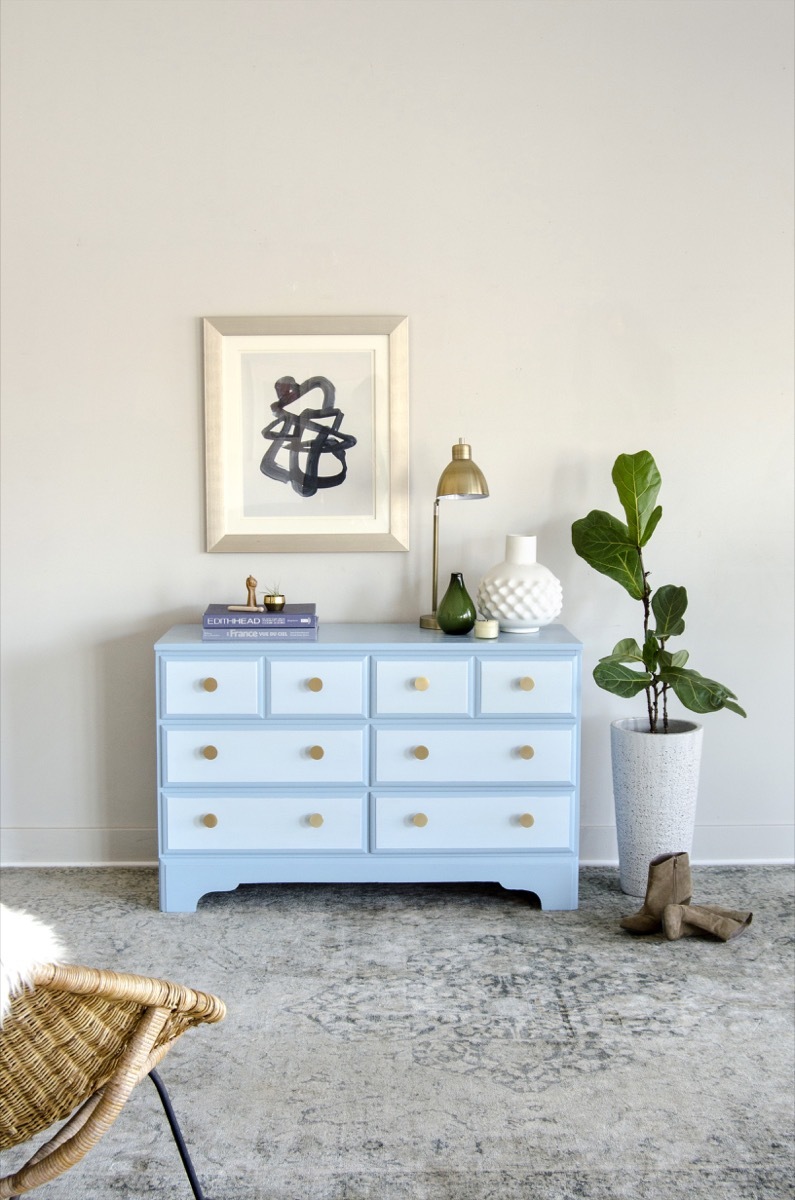

Lovely how it turned out! Great work!
@Handy Squad Thanks so much!
@Handy Squad Thanks so much!